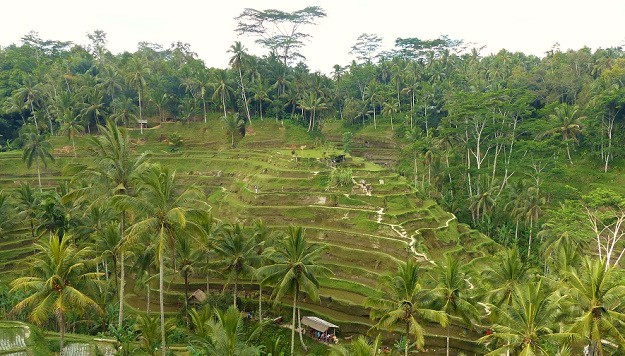Corruption in Indonesia: Should Food Import Quotas Be Scrapped?
Indonesia's Regional Representatives Council speaker Irman Gusman will be removed from his position on Tuesday (20/09) after being named a suspect by the nation's anti-corruption watchdog (Corruption Eradication Commission, or KPK) in Indonesia's latest corruption case. Allegedly, Gusman accepted a IDR 100 million (approx. USD $7,500) bribe for lobbying to manipulate West Sumatra's sugar import quota. Earlier this year State Procurement Agency Bulog imposed the quota to a company called CVSB. It is yet another graft case related to Indonesia's import quota system for food commodities.
Over the past couple of years there have been a series of corruption cases (or the suspicion of unethical behavior) related to import quotas, set by the Indonesian government, for specific food products. For these specific food commodities the central government of Indonesia allows (controlled) imports through a quota system. Imports are required as domestic demand cannot be met due to insufficient local supplies in Indonesia. it usually involves seven food commodities, namely rice, corn, soy, beef, chilies, sugar and onions, all crucial to the diet of the Indonesian people. In this quota system a local Indonesian company or several local companies are appointed as importers for these food commodities.
Prices of these seven food commodities tend to be highly volatile in Indonesia throughout the year due to supply-demand disruptions. The Indonesian government is primarily to blame for this volatility as it usually reacts too slow in terms of allowing a wider amount of imports when there occur local shortages and price hikes. This slow reaction can be attributed to weak monitoring of central authorities but it can also be because certain political players obtain financial benefit from higher local prices. Another explanation could be that central authorities are too cautious when it comes to allowing room for more imports as they are aware that the KPK is watching every move.
For sure, those local Indonesian companies that are appointed importers of specific food commodities obtain a lucrative role in this quota system (and therefore they are willing to pay some "under-the-table" funds to officials who can influence the decision to appoint a certain company). Given that there is a shortage on the domestic market for the product, prices have usually already surged significantly before the imported product starts to enter the Indonesian market. Therefore, they have a big profit margin at the start (this margin lowers as sufficient supplies from abroad manage to push prices down). In fact, it is suspected that in some cases the appointed importers deliberately wait a while before distributing certain (imported) food products on the Indonesian market in order to let prices rise higher first.

All in all, it constitutes an unfair situation that benefits a handful of people but comes at the expense of wider society. This is especially sensitive in Indonesia where a large portion of the population lives below or just above the poverty line. Given that these seven food commodities are also key ingredients for the diet of the poorer segments of society, higher prices can push those who live just above the poverty line into full poverty.
The Indonesian government, on the other hand, defends its import quota system for specific food commodities, claiming that a cap on imported food commodities protects and supports local Indonesian farmers. Moreover, it should boost the development of a domestic supply chain of these seven food commodities (which is needed to become a self-sufficient nation in terms of these food products). Government officials say that if imports are allowed - pushing down prices on the local market - then it will only lead to more financial trouble for local Indonesian farmers while the nation becomes increasingly dependent on imports.
However, besides facilitating opportunities for corruption, collusion and nepotism, the quota system generally fails to meet domestic demand hence causing major price movements throughout the year as the government acts too slow with allowing room for more imports. Therefore, Indonesia's Business Competition Supervisory Commission (KPPU) urges the government to scrap the system, in particular for beef imports. In recent years, there have been various occasions that beef prices skyrocketed due to weak local supplies and a late reaction from authorities to widen the import quota. Besides scrapping the beef import quota, the KPPU also suggests that Indonesia will not only remain dependent on cattle imports from Australia but also imports from other nations.
Indonesia needs to improve regulations related to import procurement for food products as the quota system can more-or-less be labeled a failure and allows much room for corrupt behavior. Moreover, there is no evidence that this system actually manages to boost local production of the specific food commodities. Indonesian authorities do need to support and protect its farmers as well as local production. However, there are other ways to do this than simply by blocking imports. Authorities should invest more time and money in helping to boost local production by educating local farmers about efficient farming techniques and provide more subsidies (including soft-loans) to local farmers to encourage business expansion (and most importantly make sure that specific subsidies - for example for fertilizers - are indeed enjoyed by farmers, and not go into the pockets of local officials).
Discuss
Please sign in or subscribe to comment on this column
I DO NOT SUPPORT THE INDONESIAN GOVERNMENT! TAKING A 7,500USD IS TOTALLY UNACCEPTABLE. INDONESIAN GOVERNMENT IS CORRUPT!
shut the hell your mouth bisaac
